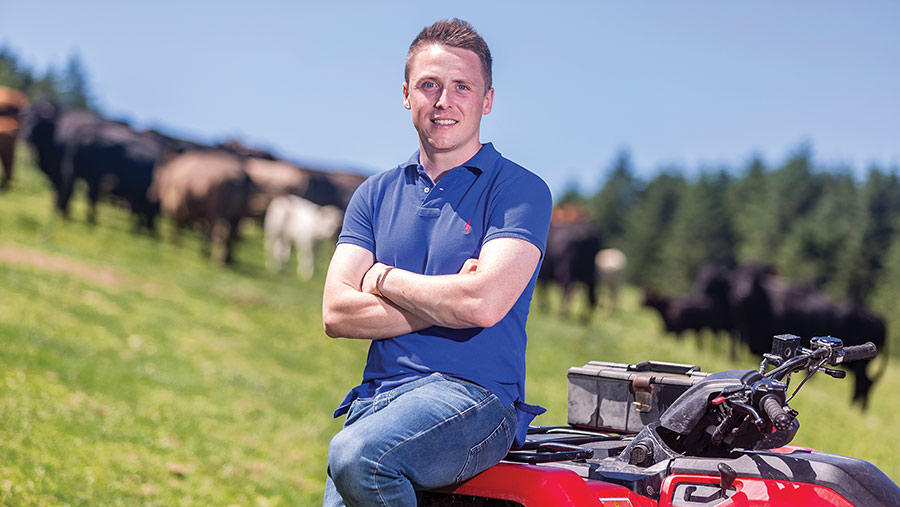Jacob Anthony: Farm assurance schemes make sense
 © Richard Stanton
© Richard Stanton The virtues of assurance schemes have been heavily debated over the past few weeks as a result of the Lucy Neville-Rolfe fiasco.
She stood down as chairman of Red Tractor after facing criticism for how she voted in the House of Lords on an amendment to the Agriculture Bill. The assurance debate might not be as polarising the “B” word, but it still divides opinion – and her resignation was the right decision as far as I am concerned.
I always find the run-up to our inspection a tense period. We pride ourselves on making sure that we put animal welfare at the top of our priority list, as well as keeping our farm records and data updated on a regular basis.
See also: Jacob Anthony – Wool should be a premium product
I can’t help but give myself sleepless nights worrying if we’ve met all the necessary requirements, though – overthinking comes easy to me in certain situations, as it does for many farmers.
I am, however, a strong advocate of assurance schemes. As Welsh and British farmers, we pride ourselves on our industry’s world-leading animal welfare and environmental standards and we’re not prepared to compromise on these.
Many people will argue that farm assurance is not worth the time and effort. Indeed, often you won’t see a direct financial benefit. In our standard farming practices, we should already be achieving the majority of the requirements contained within a farm assurance inspection, regardless of whether we are part of a scheme or not. So is it not worth having that extra piece of paper anyway?
I can understand the frustration of form-filling and having someone else tell you how you should be farming, but these schemes are not compulsory. What they do give you is the option of alternative avenues to sell your produce.
The one grievance I have with the likes of Farm Assured Welsh Livestock (FAWL) and Red Tractor is that I feel they aren’t marketed to their full potential. Often, the consumer will have very little to no understanding of them. More education and awareness of this among the general public is needed.
Regardless of what happens with Brexit, surely we British farmers will still morally want to farm to the highest of standards?
After all, we know no different, nor do we wish to. None of us have to sign up to a scheme; we all have a choice to do so.
